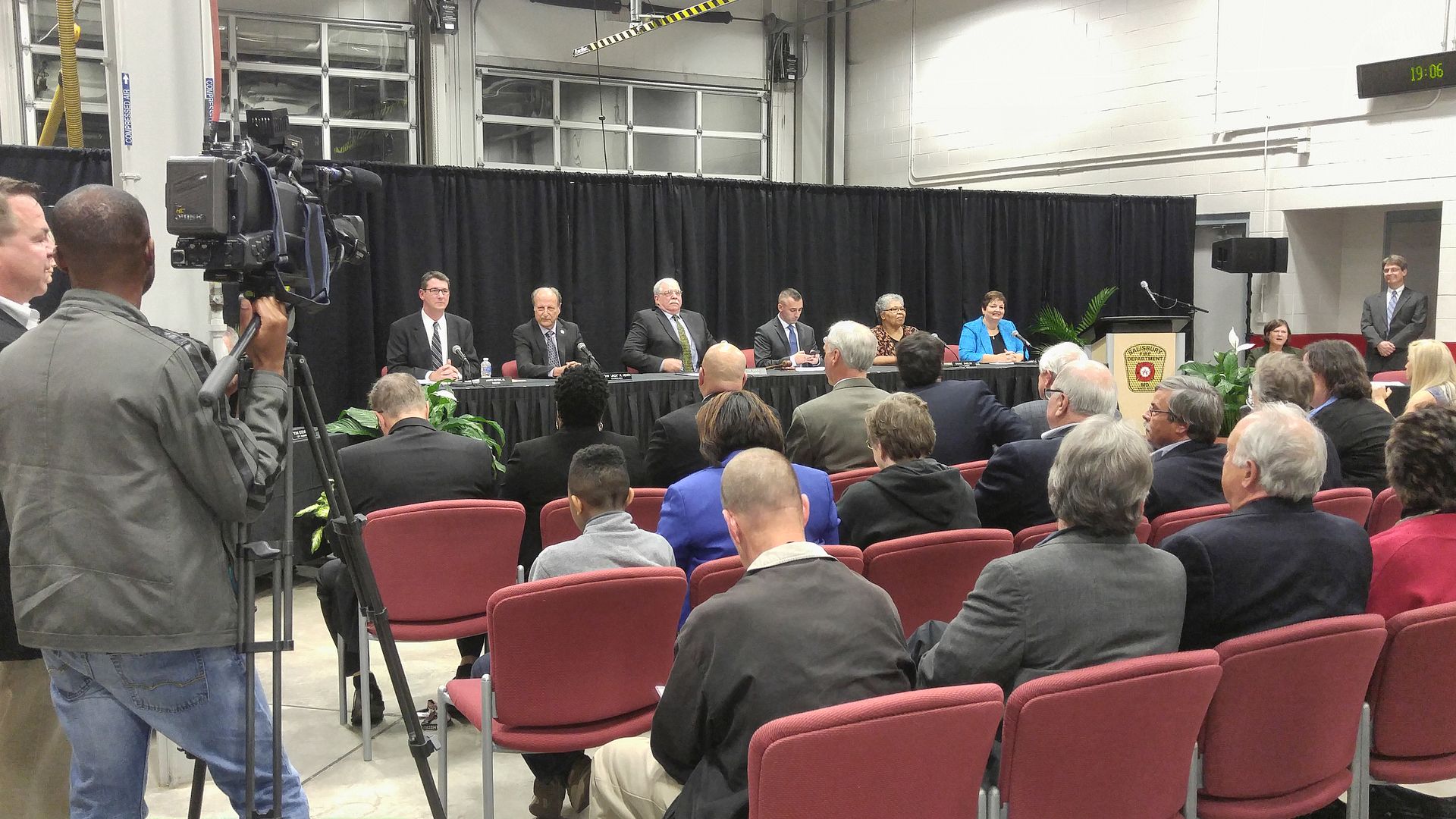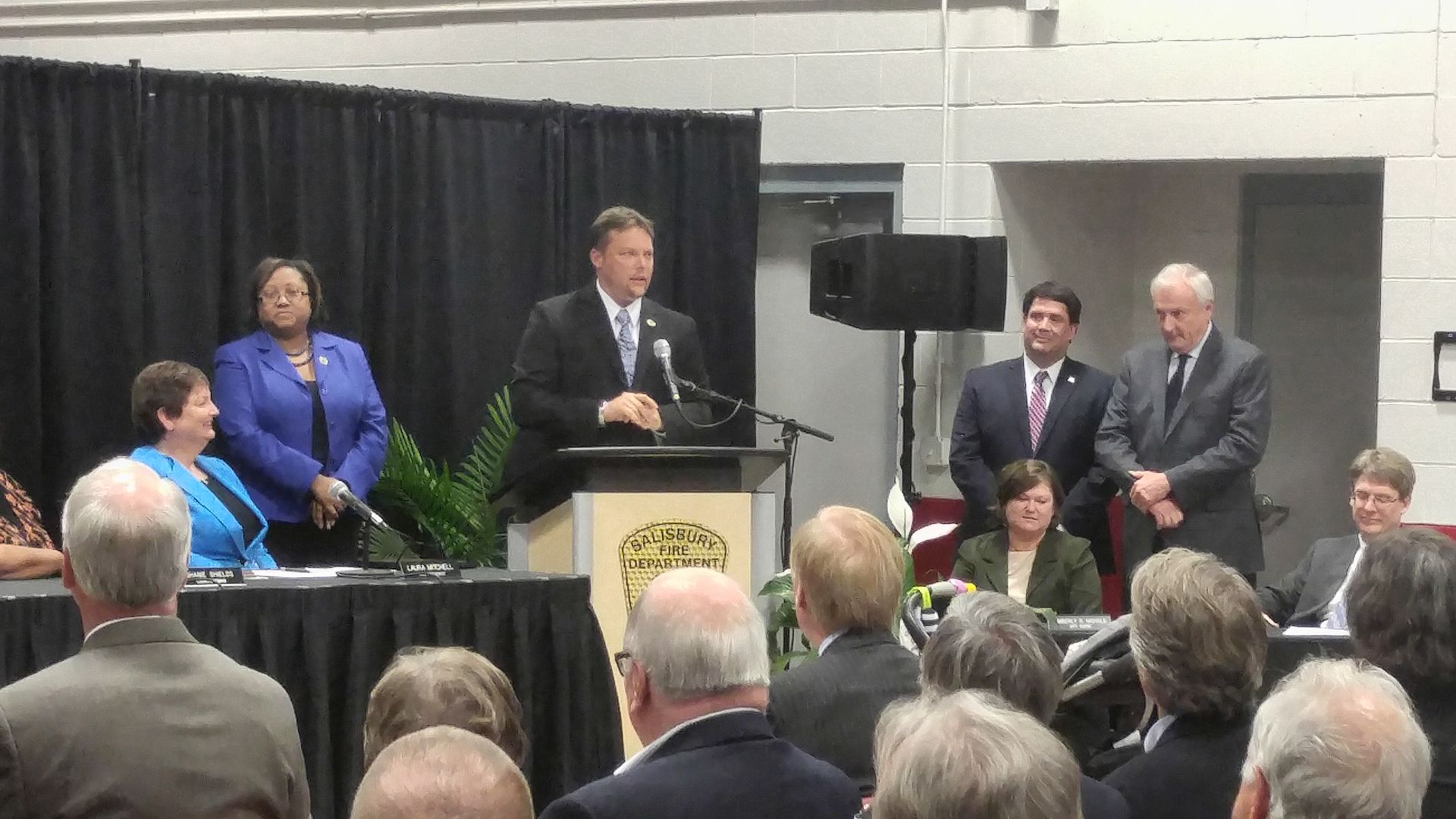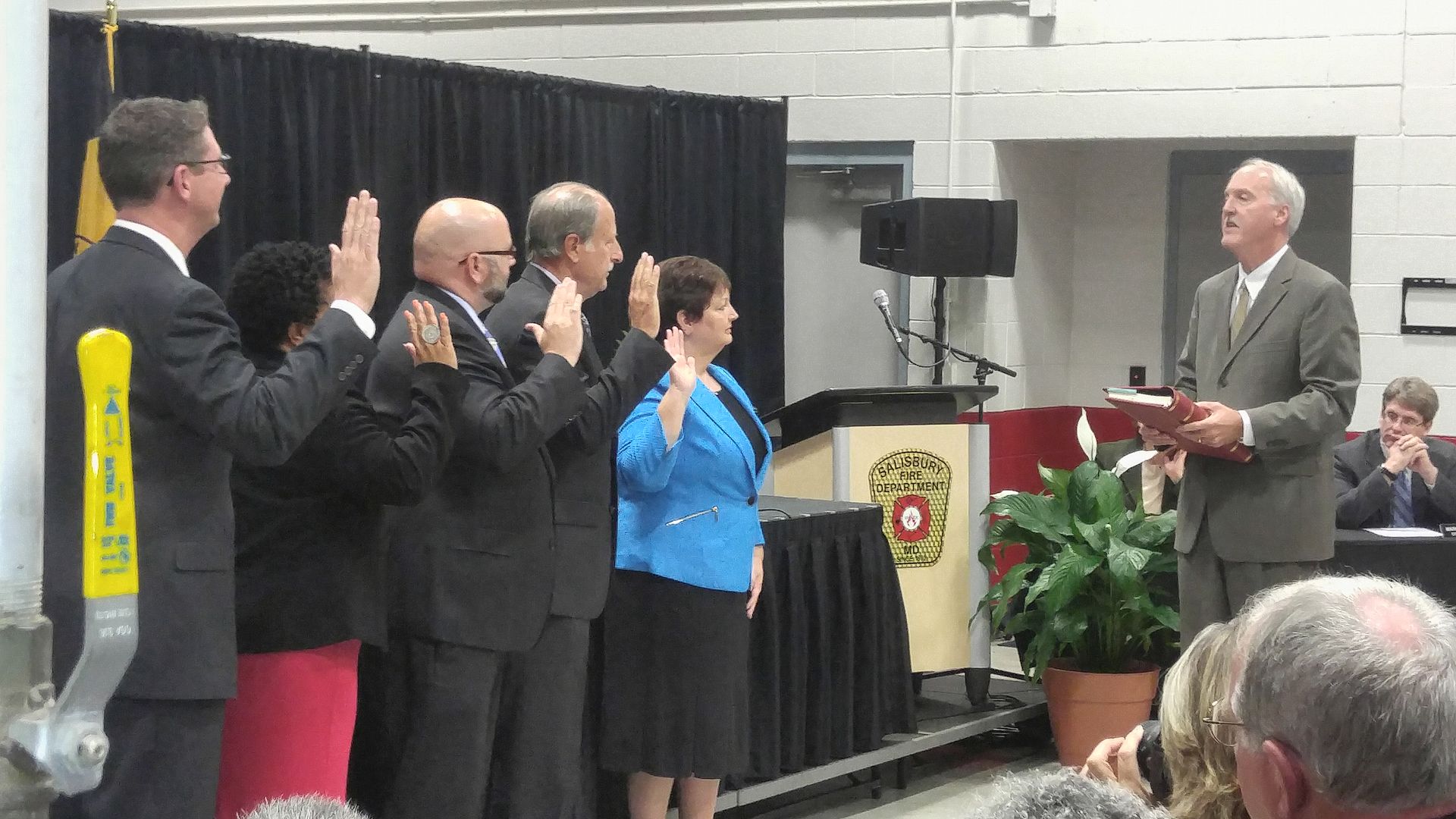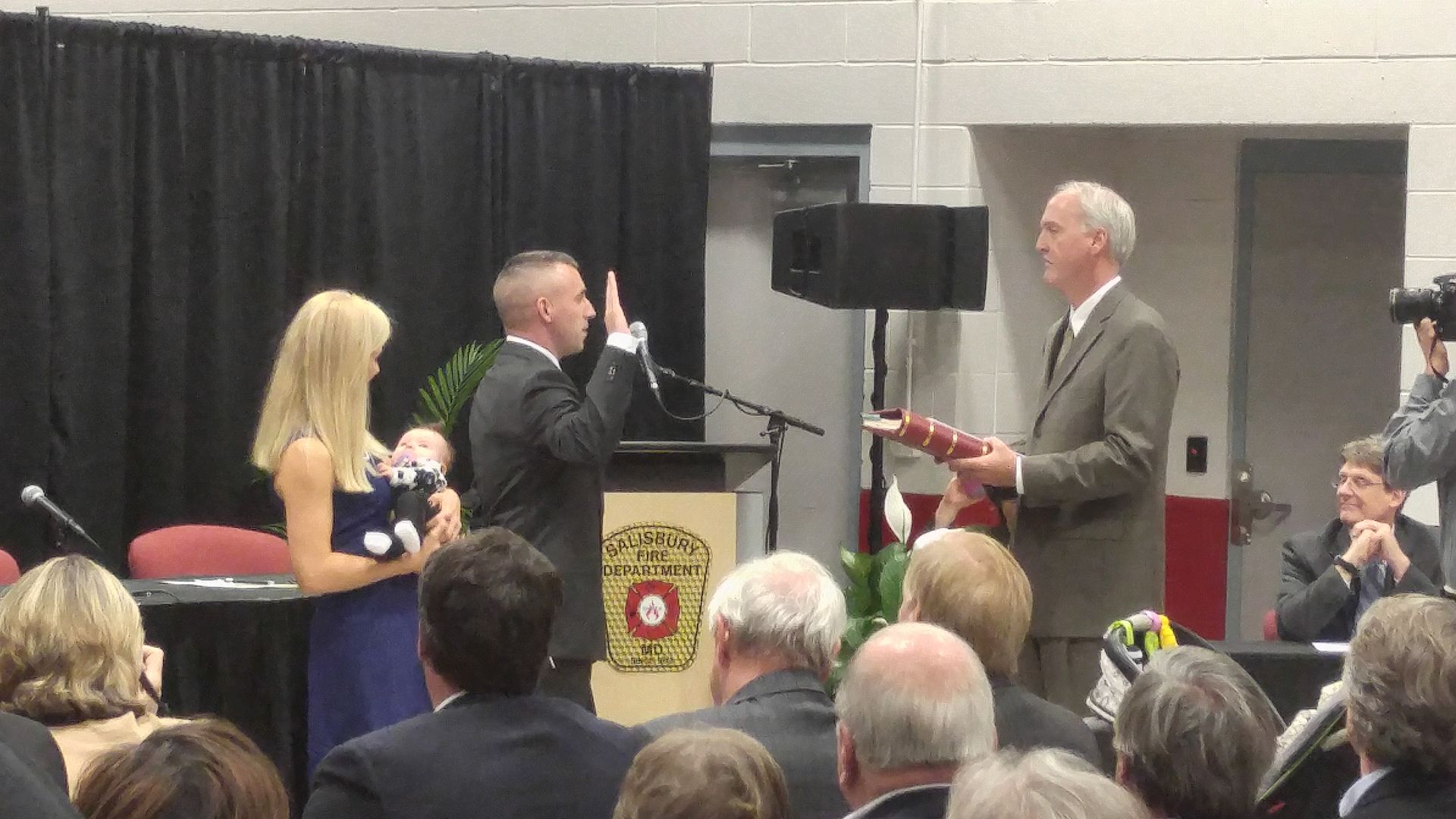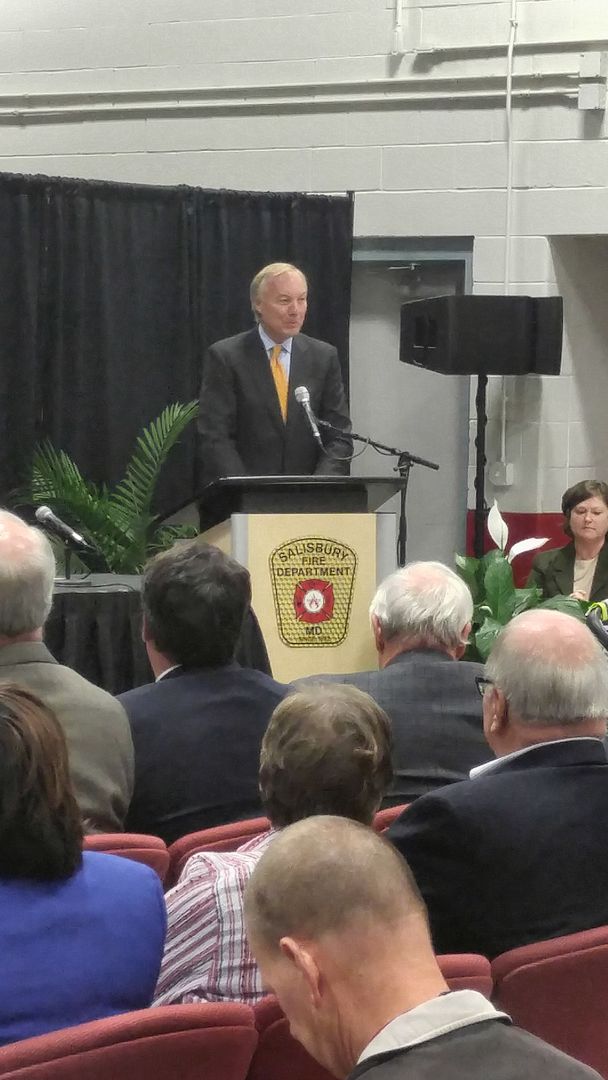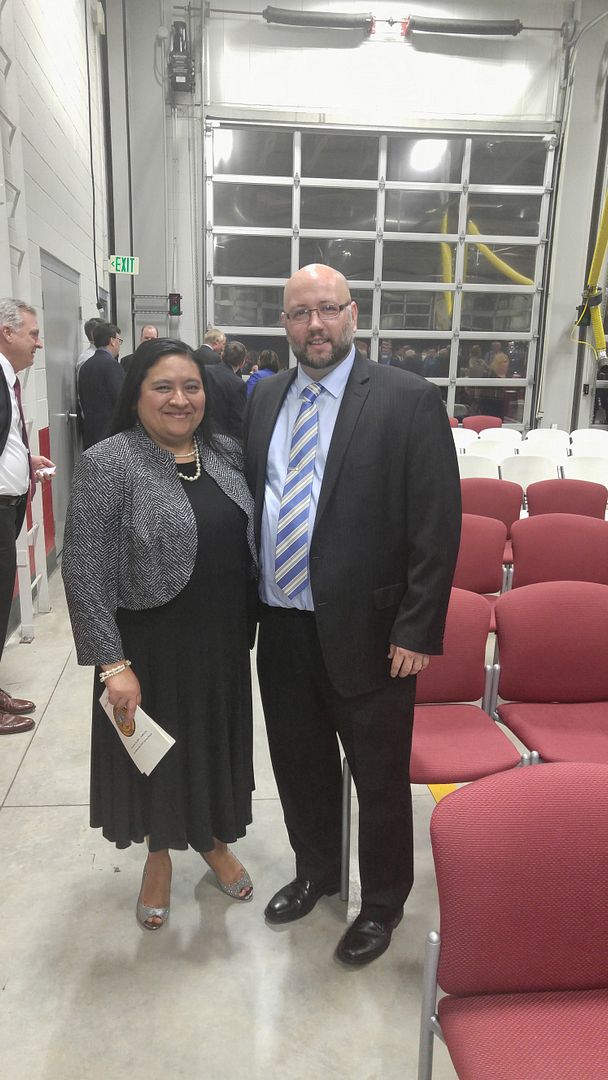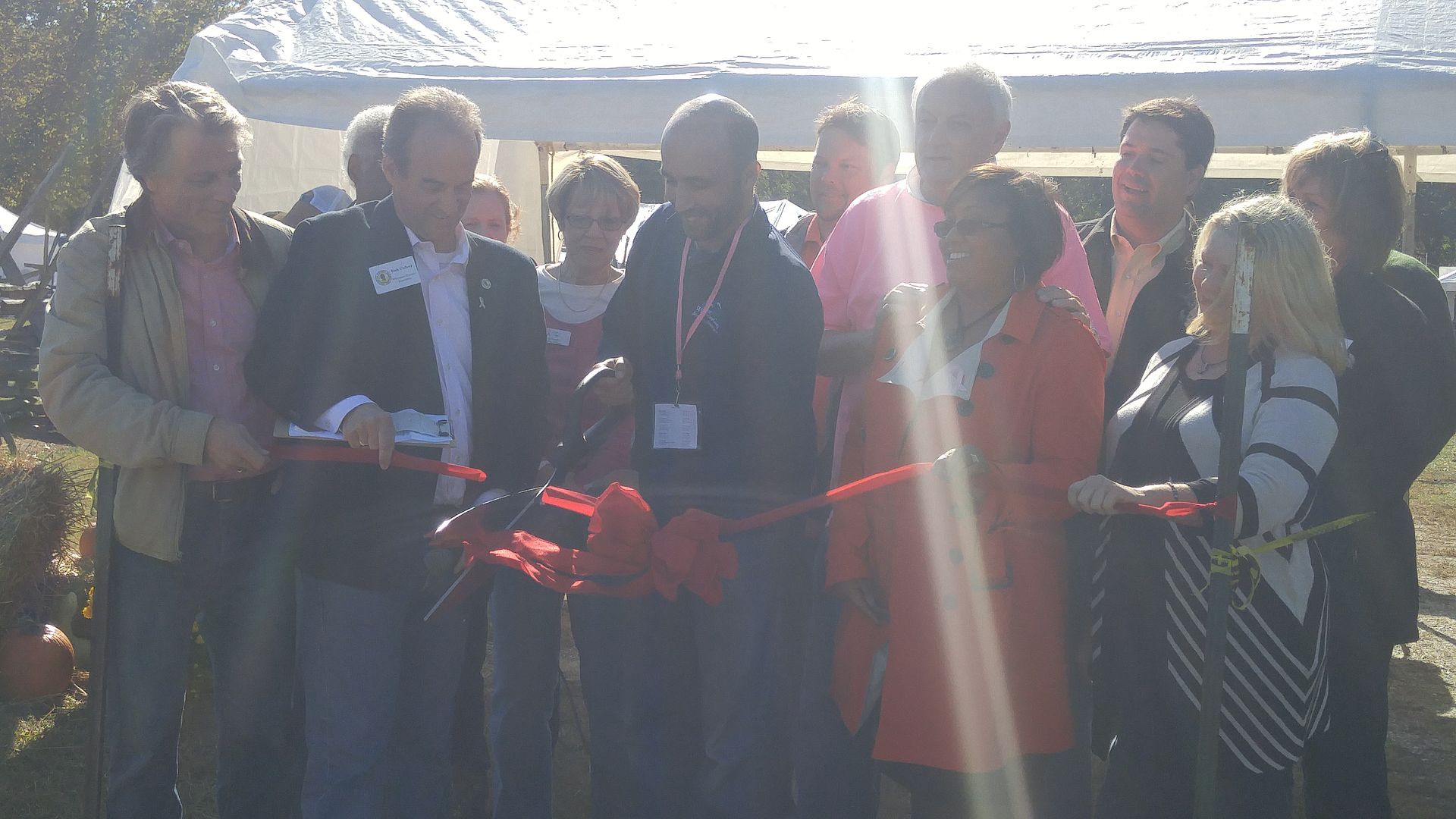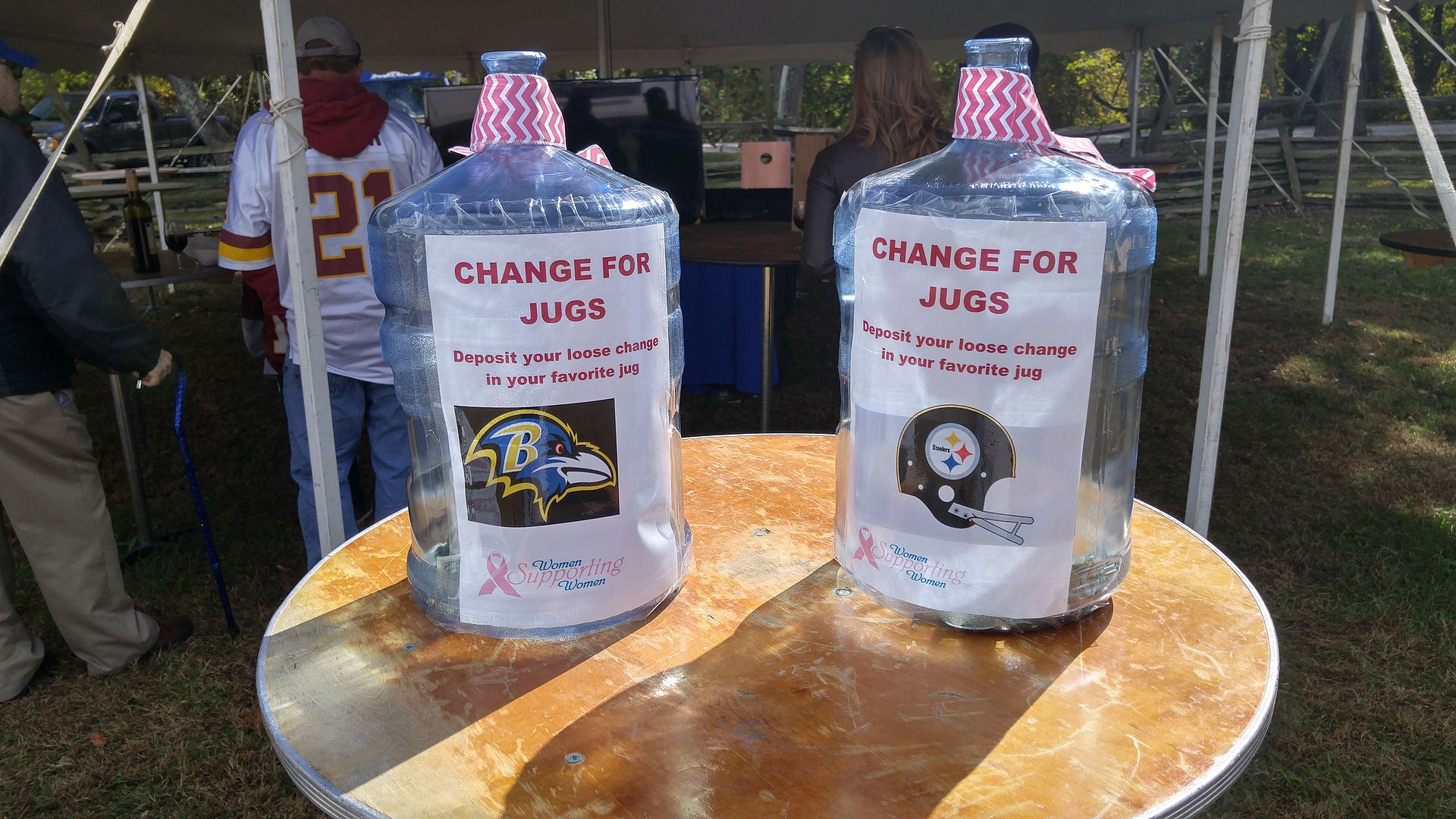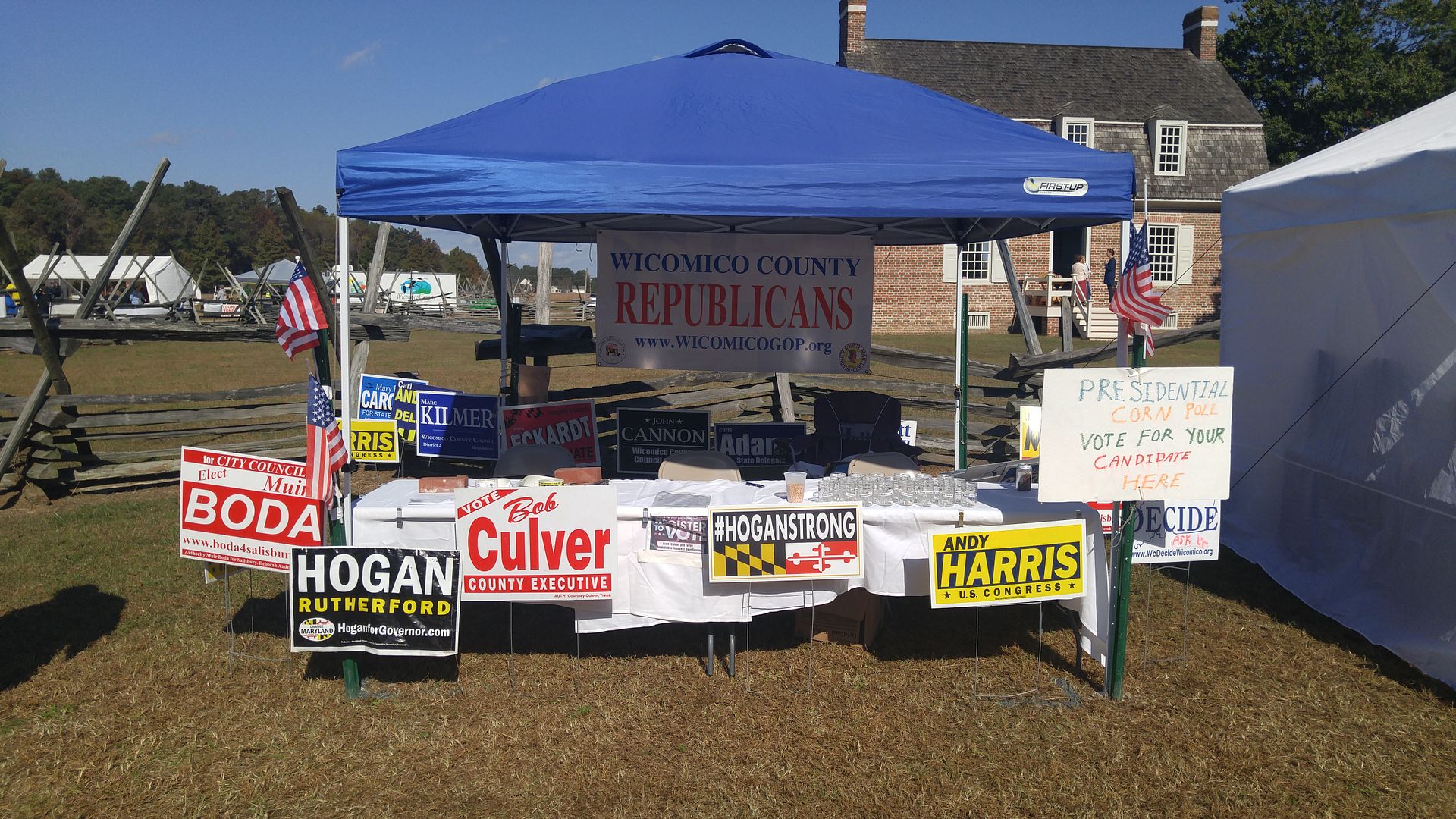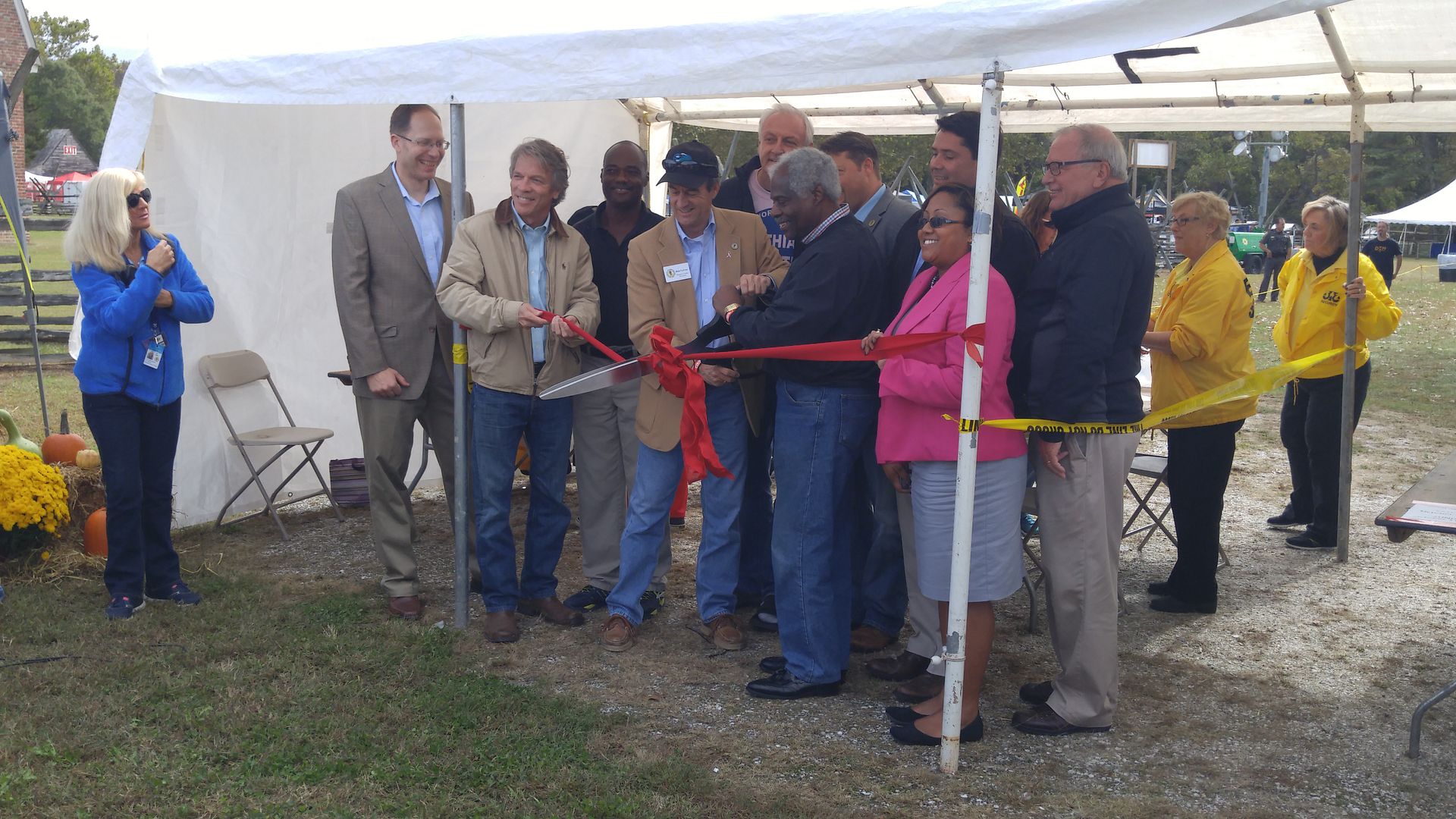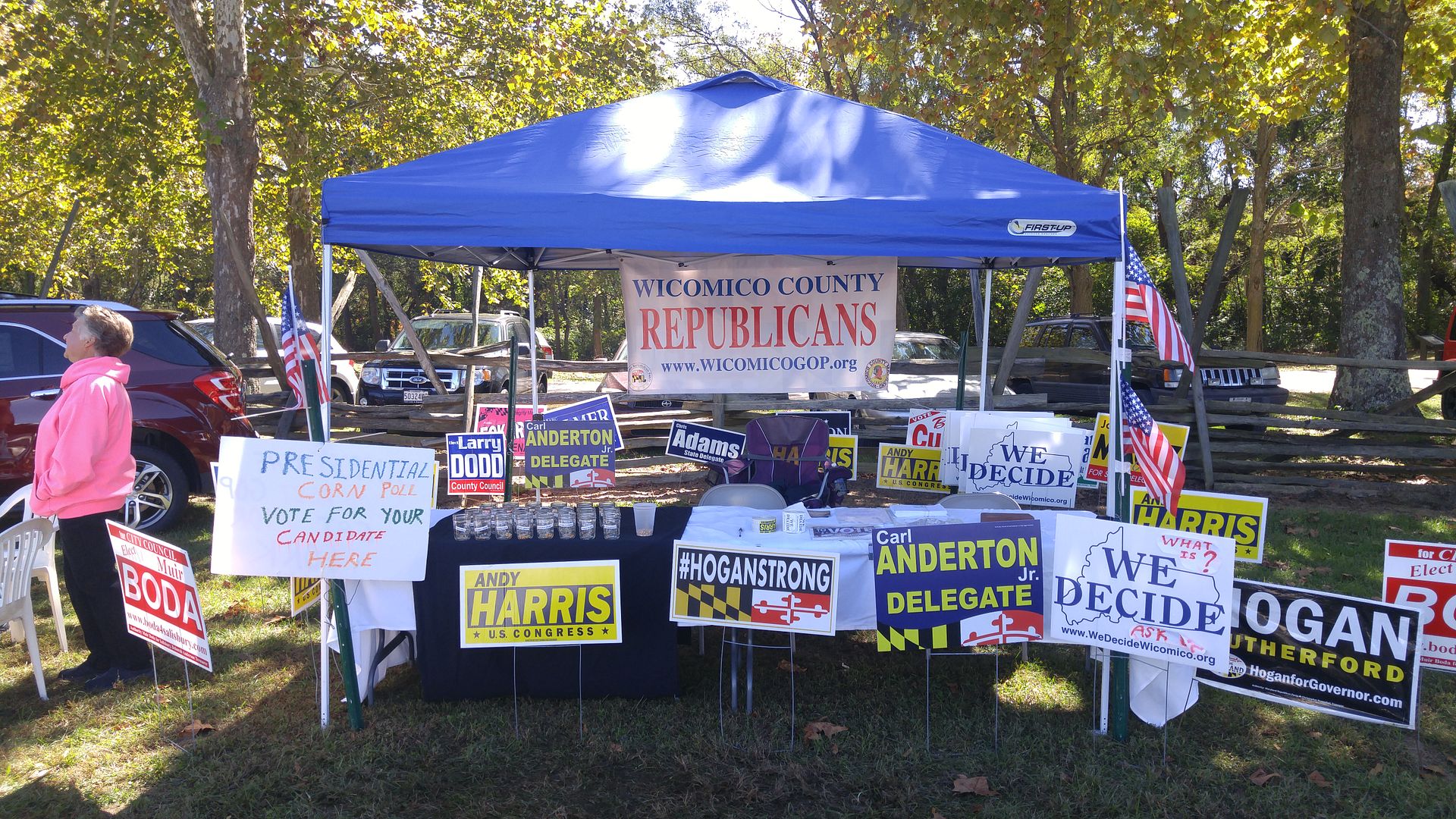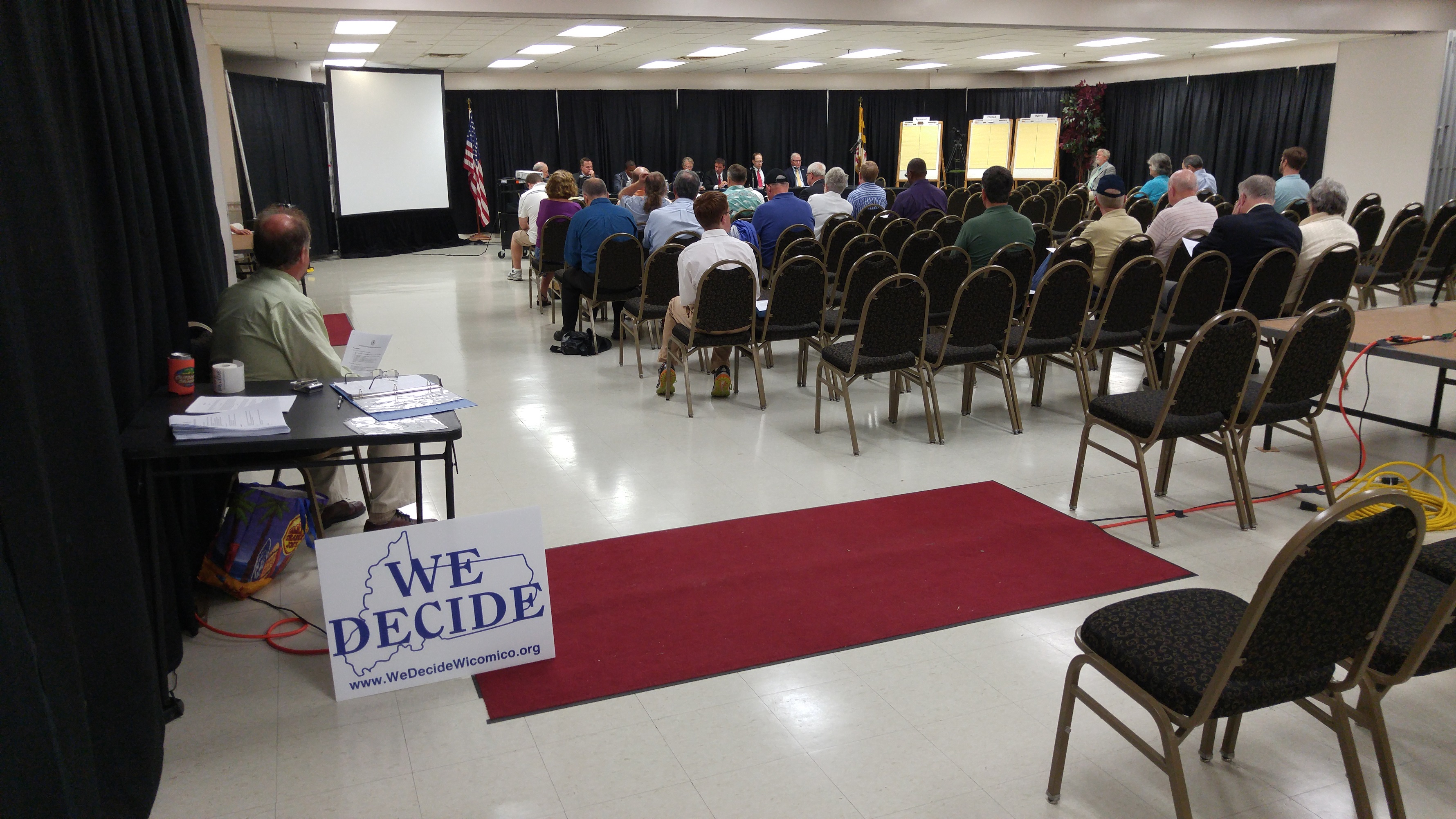We had a good gathering for our primary eve meeting, buoyed by the presence of the families of the winners of our annual scholarship contest. Three things that were missing at the start, though, were three of our officers so Second Vice-President Shawn Bradley got things underway with a little assistance from me. Fortunately, we do pretty much the same thing as an introduction every month so we made it over those bumps in the road and heard our Central Committee report first.
County Chair Mark McIver announced we were still seeking applicants for our two upcoming Board of Education appointments, although we already had 5 with their information turned in. He also reminded us that the end of this process could be at hand, as the bill allowing us to vote on whether we wanted an elected school board was passed by the General Assembly. Jackie Wellfonder revealed the signing ceremony was slated for tomorrow, with Governor Hogan signing the Senate version sponsored by Senators Jim Mathias and Addie Eckardt.
He also spoke about the voter affiliation drive to allow people to vote in our primary. It was a multi-prong push combining a mailing, letters to the editor, and advertising in local media. I noted that the effort had worked to some extent – according to Board of Elections statistics, I recalled the GOP had gained about 400 voters in March, the Democrats about 250, and unaffiliated voters falling by about 250. (Actual numbers as I looked them up just now: Republicans +398, Democrats +261, and unaffiliated -247. We also lost 5 Greens and 18 “other” but gained 9 Libertarians.)
Mark also allowed Nate Sansom to speak. On his behalf, we are planning to bring a resolution to the Spring Convention asking for electoral votes in Maryland to be awarded to the winner of each Congressional district instead of all ten being winner-take-all. (Maine and Nebraska have such a system.) As I pointed out, it’s only fair after the way Democrats gerrymandered our state.
McIver also announced he would be hosting a pig roast fundraiser on June 11, and it was likely several state candidates may be there to help the Wicomico GOP.
Ed Senkbeil, representing our scholarship committee, had the honor of presenting two local seniors WCRC Scholarships. Taylor Creighton of Mardela High School and Jessica Willey of Parkside High School were the two winners. Creighton will be heading off to Clemson University to study in the field of genetics, while Willey will be studying psychology at Washington College. Both of them gave brief introductory remarks and did well for an impromptu engagement.
We then heard from our featured speaker: the incoming president of the Maryland College Republicans, Patty Miller of Salisbury University.
After Miller introduced her successor as SU chapter president, Shelby Hall, she remarked that the College Republicans were “on the front lines of dealing with liberal college students.” Under her leadership of the SU chapter, they had become active in local and state campaigns and recently hosted an address by Ben Shapiro, a writer, editor, and author perhaps most famous for working at Breitbart.com until he resigned after the Michelle Fields incident.
It was interesting to learn that her maternal family has a rich heritage in politics. Miller’s mother is a native of Honduras, where her family was involved in the 2009 removal of President Manuel Zelaya, a leftist ally of the late Venezuelan strongman Hugo Chavez. Zelaya was ousted after attempting to circumvent a constitutional provision against serving more than one four-year term. These family ties made her “passionate about capitalism…the American Dream is still alive.”
As the CR state chair, she announced “I’m here to get stuff done.” She actually wasn’t originally seeking the office of president but a series of events led her to take the top position, which oversees 11 school-level chapters around the state – Miller would like to secure two others as well. She also gets a non-voting seat on the state party’s executive committee, although there is a proposal before the membership next month that may allow the CRs to have a vote once again.
After Miller’s remarks, we went through some business. Jackie Wellfonder had the list of polling places for sign placement, which would commence after the meeting. She also announced the newly-formed Wicomico Republican Women’s Club would host a “Welcome Back Reception for the Eastern Shore Delegation” on May 5.
Jim Jester let us know the Crab Feast will be September 10, once again at Schumaker Pond. His next step was securing the beer permit, but Muir Boda added we were seeking event sponsors for the first time to help defray the costs.
Nate Sansom was pleased to say the second meeting of the Wicomico Teenage Republicans was a success. Through his diligence, Nate was able to secure a phone visit from two local candidates: Anthony Seda for U.S. Senate and Jonathan Goff for Congress. He also received information from several other candidates to distribute, so these were well-informed TARs.
While we waited for 50/50 tickets to be sold as our last event, I asked Muir Boda to give us a City Council update. He had just come from the first budget meeting, where they were attempting to raise water and sewer rates. Muir also explained one of the budget priorities set out by Mayor Jake Day: the construction of a community center to host city-sponsored after-school programs as well as more immediate funding for a summer youth employment program. While the city of Salisbury would purchase the land and build the community center, funding for its operations would come from local non-profits.
Boda also noted that getting more highway user revenue from the state would assist in fixing some of the city’s worst streets, which have been neglected for years if not decades.
So while the meeting turned out to be less than an hour, several people stuck around to help with signs for tomorrow. If you ask me, the most effective ones should be the red Ted Cruz sign, the blue-and-white Richard Douglas sign, and the yellow-and-blue Andy Harris one.
Next month’s meeting (and yes, we will have a May meeting thanks to a late Memorial Day) will be May 23. It’s not official, but I think we are due for our annual legislative wrapup.


